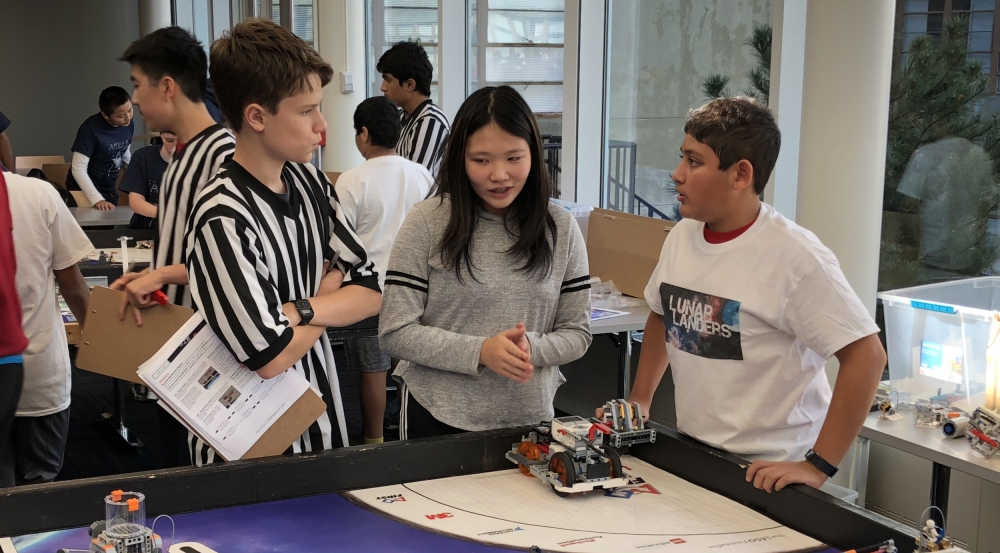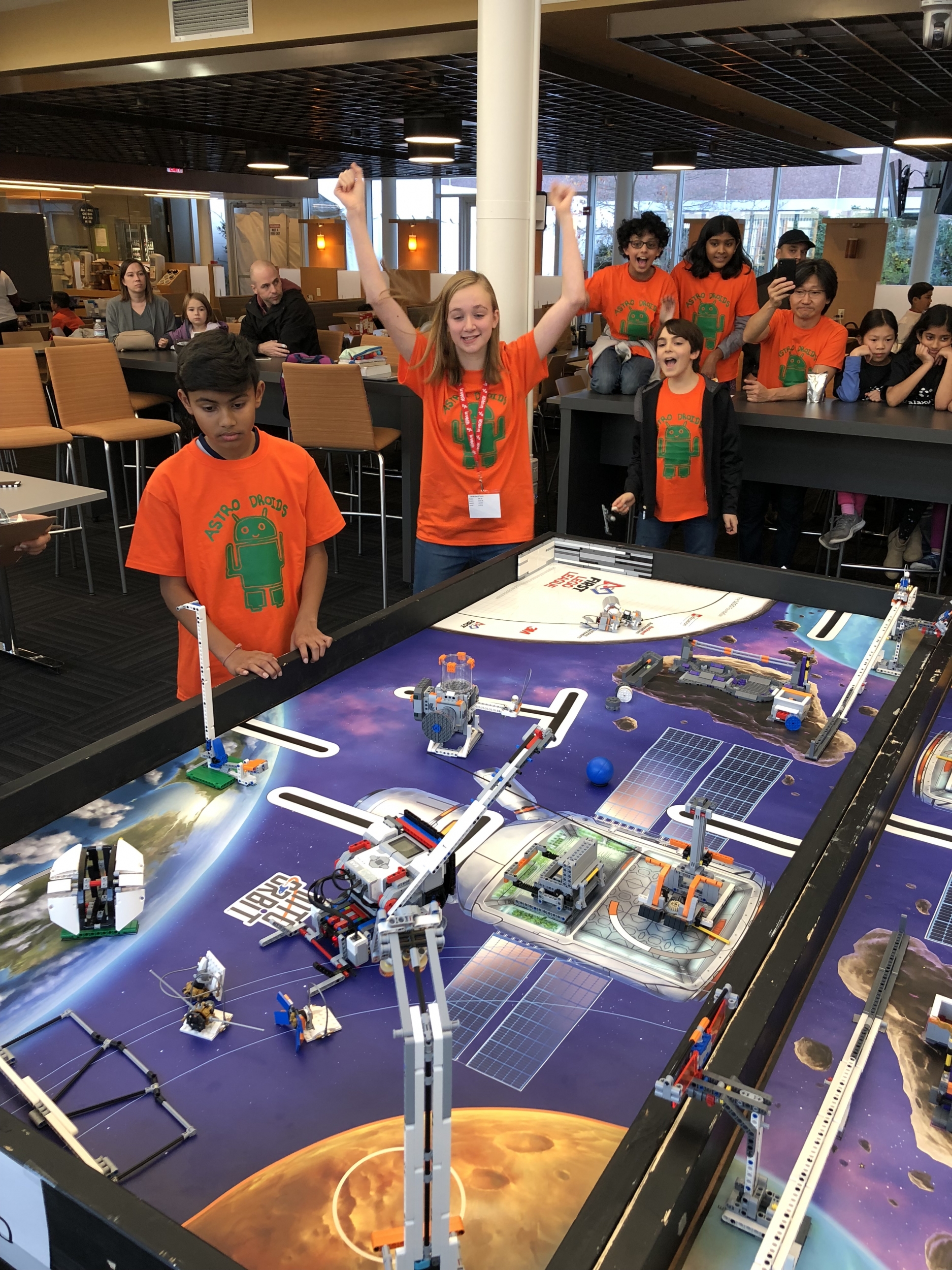Lincoln Laboratory helps students ROLL their robots to the moon

Food safety, medical technology, disaster recovery, the water cycle, animal welfare, and now the final frontier. These are all real-world problems that the students in the Robotics Outreach at Lincoln Laboratory (ROLL) program have tried to tackle over the years. ROLL works with three age groups that participate in the FIRST (For Inspiration and Recognition of Science and Technology) organization’s national program of educational extracurricular activities in which K–12 students work in teams to learn about STEM concepts, brainstorm solutions to real-world problems, and build robots to attempt FIRST-designated challenges. At the end of their respective programs, students present their work at a qualifying round and compete against other teams in their age group.
Laboratory staff members volunteer their time to serve as team coaches and provide students with important guidance. This year, students are working on space-themed challenges, including thinking about solutions involving space travel and living on the moon. Coaches meet with their teams once a week to teach them team building, problem solving, and technical basics. While many of the coaches have technical backgrounds, it is not a requirement to volunteer.
The Laboratory started the ROLL program in 2006 with just a few staff volunteers. Since then, the program has grown and over the years has involved more than 80 staff members who share their love of STEM by mentoring students. With Laboratory staff often involved in time-consuming projects, ROLL is always looking for new volunteers to help guide the students and run the program.
"All you need is to be able to work with kids," said Richard Czerwinski, who has been involved with the program since 2010. "In fact, it is a core value of the program that we coaches don’t solve problems for the kids — we feel that would take away from their own experience and ownership that we want them to have over their own solutions."
This year, Laboratory staff are coaching 10 teams in the FIRST LEGO League (FLL) — one age group within ROLL that consists of students from fourth to eighth grade. For the 2018–2019 season, FLL teams were tasked with using LEGO robot technology to solve at least one of 15 "space missions." This challenge includes building a LEGO robot to simulate and complete a space-related task like mineral extraction or crossing a crater.

In addition to these technical challenges, students in each age group work on a supplemental research project to learn about STEM concepts. Vishal Chawla volunteered this year as an FLL coach. His team is currently researching the effects of radiation during long-term space travel. "My favorite part about working with these talented students is the kind of thoughts and curiosity they use to come up with various relevant questions," Chawla said. "Because they don't have any limitations, it opens up the possibility of solutions that may never have been thought of before."
While the overall goal of ROLL is to instill core values like professionalism, fun, and teamwork, there are also final competitions in which the teams compete. The FIRST LEGO League Jr. (FLL Jr.) students, in first to third grade, will present their work at an expo in December, and FLL teams will compete against other teams in their age group. FIRST Tech Challenge (FTC) teams that consist of high school students will use their more-advanced Android-based robots to compete against other teams from around the state in a qualifying round in December.
Hemonth Rao, coaches an FLL Jr. team and said that his favorite part of working with the students is seeing how much they learn throughout the season: "How do you make that crane lift a heavier load? Remember when we talked about gears? What do you think you could do with that? Having that back-and-forth, and seeing the kids get the answer, is a lot of fun."
ROLL is just one way that the Laboratory is helping shape the next generation of scientists. "Kids often have a lot of engineering knowledge. They just don’t know that they know it," Rao said.